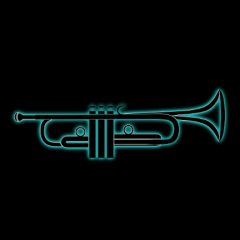Leaderboard
Popular Content
Showing content with the highest reputation on 08/08/2019 in all areas
-
In defense of music theory
zykO and one other reacted to Patrick Burns for a topic
I was about to post those words verbatim. I think John makes a lot of important points. They're the same points I've made in conversations over the years. If I could grossly paraphrase some of what John said: the further away music theory gets from talking about specific songs and musical phrases, the less useful it becomes. But I do have one small point of disagreement. I think that music theory, even when taught as described above, can hinder creativity for some people if the person is learning music theory before they learn to play by ear. (Which is how most of us mere mortals have to learn music theory, unfortunately, so it's kind of a moot point.) How does it hinder creativity? Well, this is going to be a very academic point, but I'll make it anyway: music theory comes with a lot of assumptions that don't line up exactly with our cognition of music. So when we try to learn by ear, after having absorbed the lens of music theory, we're searching for certain "things" in the music that our ear would not otherwise have sought out on its own to form its own intuitive understanding. This doesn't prevent us from learning by ear, but it really slows things down, in my experience of seeing different musicians and finding out their history of learning. Not because there's anything wrong or totalitarian about music theory, but only because of human psychology. Let me draw a comparison to language learning. Language learning has a lot of parallels. We all know they share some areas of the brain. But more importantly language and music also share a dual life. We have certain intuitive abilities surrounding both language and music, and we also have the more analytical, grammatical understanding surrounding them. Let's take a sentence. One that a child may learn very early on in life. "Do you want some food?" If you look at that sentence from a grammatical perspective (the music theory perspective), you've got an interrogative verb order with the helping verb coming early, you've got a second person singular pronoun, the verb, an indefinite pronoun, the direct (?) object. Etc. Etc. All of those things are true and are merely a neutral understanding, just like music theory's analysis can be true and neutral. But the child learning its first language is not building their intuitive sense of language that way. They hear "dooyoowansum food." And their brain absorbs that, comparing it with similar sounds like "dooyoowanna" or "arrweegonna" or "izzhegonna" until a library of sounds is built by use, comparison, and contrasts. It's not an incrementally accumulated index of words and ideas, it's a network of compare and contrast through use. Now, when we get older, we might learn a second language. Maybe in high school or college. And maybe then we actually do begin with the grammatical approach, the music theory understanding. In other words, we begin by learning the individual vocab words, the parts of speech, the conjugations. But it's important to remember that this is only the loading program for our intuitive language abilities. We are hyperconscious of the grammar at first (the music theory) until the intuitive abilities of our mother language expand their capacity to this new language. Then the grammar becomes secondary. Still true and useful, but a secondary understanding. The problem with music is that some people never develop that initial intuitive relationship to music, and they get music theory instead. It's like a child trying to think through learning their first language while simultaneously thinking about the parts of speech they're hearing and using. Not wrong, per se, but not right either. The trap is that there is an initial burst of satisfaction when music theory starts to make sense. But in the long run, if you haven't learned to play by ear first, you're slowing down your eventual ability to play and write by ear, in my opinion. It just makes you start searching for the wrong 'things' in music. Unfortunately, the reality is that most kids will never have the obsession or support system to learn music by ear in early childhood. So we all grow up with what I consider a cognitive disabilities in music, just like a child underexposed to language activities would have speech/language pathologies. So we have to adapt education to that reality. And music theory is one of the main compensatory avenues we have. Humans are chatterboxes and sometimes we just need things to be legible so we can get by. (Speaking as someone who started with classical piano/guitar, and went to college on a full music scholarship to study film composition, guitar, and ethnomusicology. But now I'm a dentist, so...)2 points -
(MP3 direct download link here) Hey folks, been a while since I last posted. Here's something very different from the last two pieces I put up here. It's a synth-heavy combo of Acts 1 and 2 from Sonic & Knuckles' Lava Reef Zone. I always loved the inherent juxtaposition of Lava Reef - the fiery magma of Act 1 vs. the cool, almost ice-like crystal structures of Act 2... and of course, the music for each differs appropriately. The goal with this remix was to try and blend the smooth intrigue of Act 2 with some of the intensity of Act 1. Genre-wise it's a mix of things - early on there's some downtempo/chillout vibes, but later it gets more energetic. I suppose there's some synthwave influence too (lots of analog-style leads and pads, heh) Here's a couple links in case you've not heard the source tunes before: Act 1 - Act 2 - Hoping to submit this for review at some point, so by all means - have a listen and critique anything and everything about it! Edit: this track has now been submitted to the Judges Panel, changing the prefix to reflect this. Thanks again for your help everyone!1 point
-
Hey Souperion! I love the Golden Sun soundtracks, and I'm glad to see you're shining some light on them here (heh). You mentioned in your post that you felt you might be out of your league with EWSO/Sytrus, so I figured I'd do my best to give you a detailed breakdown of what I think is working well so far and what could be improved. This ended up being kind of a huge writeup lol, but I hope some of it helps! GENERAL THOUGHTS The mix is clear, and I don't find myself struggling to differentiate instruments. So you've avoided muddying things up, which is a good start. I find the piece a bit thin and lacking in richness though. I think this is because frequency-wise I'm hearing mainly mids and highs. You seem to have a low synth pad at times (heard most clearly right in the beginning) but it's pretty subtle. You might try beefing up the low end during the busier sections (e.g. 1:16 to 1:40) with a deep cello/doublebass ensemble or something similar. Go for slow-moving progressions with a low attack/gradual buildup on each note, and see how that sounds. Overall the playing style is fairly mechanical. Your voice selection is good - lots of bell/mallet-type instruments which create a nice wintry mood - but these instruments always seem to be hitting right on the beats and with the same velocity each time. In an orchestral style like this, more humanization is often preferable. Give some notes a stronger emphasis (i.e. higher velocity), while others can be quiet, understated, and/or slightly off the beat to sound more natural. COMPOSITION/ARRANGEMENT SPECIFICS From 0:36 to 0:44, you've got some nice melodies on what sounds like a music box, and I like where things are going here. But starting at 0:44 I'm detecting some dissonance between the pan flute and the music box (esp. during 0:54 to 1:04, after which the dissonance seems to clear up). I can't be sure without seeing the notation, but I think what might be happening here is that you're using different scales for the flute/music box progressions, so they occasionally play notes that are out-of-key with one another. The flute sounds close to the original song during this section, so I think the best way to address this is to revisit what the music box is doing and explore some progressions that sound more harmonious with the flute. It'll help a lot to know what key the flute's playing in, if you don't already. Moving on to 1:32 - the strings and other instruments are working well together here, and I'd say this is the strongest part of the piece. It's richer and has some pleasing harmonies. I'm less fond of 1:47 - 1:54 - the sense of completion at 1:49 seems a little abrupt and flat, and what comes after (until 1:54) strikes me as a bit underdeveloped. I might say end on the note at 1:47 instead - draw it out with a faded sustain, which would then flow into what you have at 1:54 to complete the musical thought more succinctly. (You might end up needing to trim out a few seconds of the song to make something like this work, but with a total length of 4:17 I'd say you're safe to shorten it some.) At 3:14 - the swifter, descending progressions here and the way the strings jump upward in pitch for a bit before releasing at 3:33 works nicely. It's a good change of pace, an effective variation on the original piece, and the breathing room for a moment afterward helps with the song's pacing. I'd like to hear more stuff like this so the arrangement surprises me more and seems less homogenous. For instance, there's a repeated musical phrase (an ostinato, more or less) that you first introduce at 1:58 on the music box, and the specific rhythm of this ostinato becomes a bit dominant throughout the second half of the song. It goes away at 2:20, but the strings pick up a close variation 8 seconds later. It's absent during 2:44 - 3:00, but returns again from 3:00 - 3:14. Then it's back at 3:40 and persists nearly until the song ends. So due to this, I came away from the song feeling like the progressions during the second half relied a little too much on the timing of that ostinato, and exploring slight variations on the pitches involved with it. I think your relatively sparse instrumentation is part of what made that stand out to me. It's a fine phrase to use and repeat from time to time, but I'd take a look at some of the sections mentioned above and explore different phrases you could provide for that background rhythm. Or maybe eliminate the ostinato entirely in some of those spots, allowing the piece to flow in a different way for a while. From 3:33 onward I like how the piece wraps up. The final staccato string notes that start at 4:02 sound clipped to me though - like they haven't been allowed to fully decay. This is especially noticable at 4:06 through to the end. I'm not sure if this is something about how your reverb is set up, or maybe to do with your original instrument samples, but perhaps you can hear what I mean. So to sum up: arrangement-wise, what I'd like to hear is more build + release, more contrast in the pacing, more moments where I can anticipate what the piece is preparing to say and then be pleased by what's ultimately said. I think the best example you have of this now is 3:14 to 3:33. More humanization (velocity variation/less consistently precise timing) would also provide dynamism, and I feel like some extra low-end richness (cello/doublebass ensembles here and there?) would help as well. Take my suggestions with a grain of salt though. Sometimes you can identify a problem in a piece and provide a solution, but that solution doesn't work so well in practice. You might find other better answers once you head back in. Good luck with the next draft!1 point
-
Really enjoying this! Any chance you could provide a download link?1 point
-

Golden Sun: A World Reignited - History
Chernabogue reacted to TSori for a topic
@Chernabogue Good point. I had forgotten about that. I'll talk to the OCR staff1 point -
I adore this. It's incredibly well-balanced. There's so much going on in the song at any given moment, but it never feels overwhelming. The two scores are so different-feeling that I was sure trying to blend them would go about as well as blending actual fire and ice but you've managed to do it while staying true to the dynamics of both of them. As a big fan of the source material, I had high expectations and you blew them out of the water. Absolutely stellar job.1 point
-
This is good. The use of organic sounding bells/percussion alongside synth nicely captures both vibes you set out for without keeping them too separated. You give the track enough time to warm up, while keeping it from boiling over. Heat jokes aside, the progression of dynamics is engaging and the piece has plenty to offer the listener. I sure enjoyed it, nice work!1 point
-
1 point
-

Chill Ambient Atmospheric Hip Hop Instrumental [Free Download]
Ordonis reacted to StandaloneBeats for a topic
Hey guys. I made a dope hip hop beat on the DKC Aquatic Ambience chord progression. Let me know what you think! Subscribe if you like it. I'm posting new free beats every day :) https://www.youtube.com/watch?v=rUwBAEK3W-w1 point -
Me in July: Oh, this isn't due until August! I've got plenty of time. Me in August, 12 hours before the deadline and haven't even started: Fffffuuuuu... (Don't extend for me. I don't have much free time this month at all.)0 points


